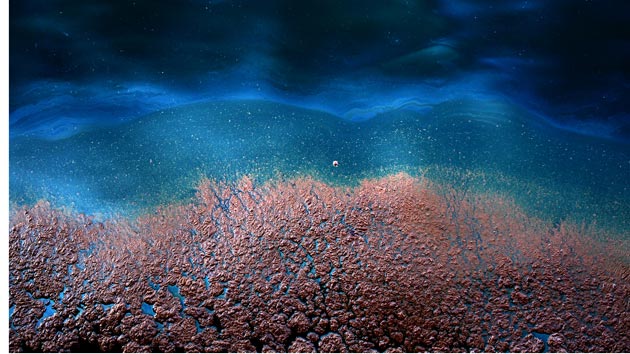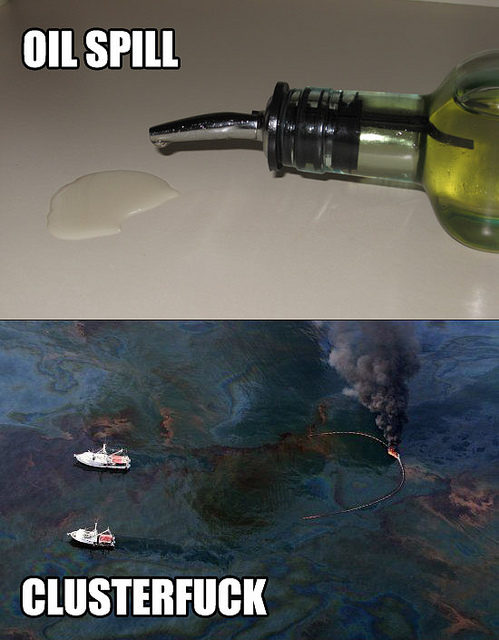After the 2010 Deepwater Horizon disaster, when an oil rig explosion sent five million barrels of oil gushing into the Gulf of Mexico, the company behind the spill, BP, went swiftly into damage-control mode. One of its first steps was to buy up a third of the world’s supply of chemical dispersants, including one called Corexit that was designed to concentrate oil into droplets that sink into the water column, where in theory they can be degraded by bacteria and stay off beaches.
After the spill, roughly two million gallons of Corexit were dumped into the Gulf. There’s just one problem: Despite BP’s protestations to the contrary, Corexit is believed to be highly toxic—not just to marine life but also to the workers who were spraying it and locals living nearby—according to a new segment on Vice that will air tonight on HBO at 11 pm ET. (For its part, BP has said that its use of dispersants was approved by the federal government and that it isn’t aware of any data that the disperants pose a health threat.)
The show follows cleanup workers, local doctors, and shrimpers, and suggests that four years after the spill, Corexit contamination could be nearly as big a problem as the oil itself. You can watch a short clip from tonight’s show above.

















